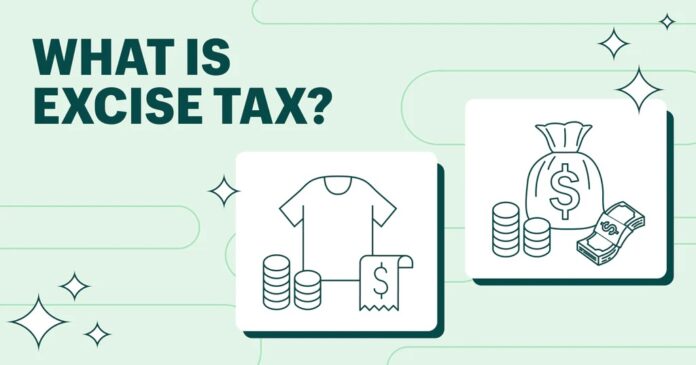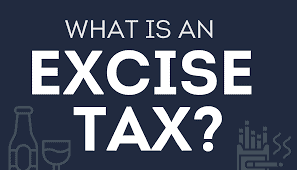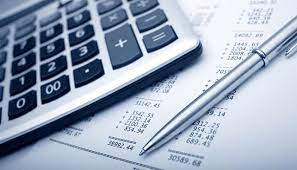Complete guide about Excise Tax will be discussed in this article. Sales taxes, the modest percentages that state and municipal governments add to the retail cost of products and services, are generally known to us. However, there are frequently other, less noticeable taxes included in the totals you see at the register, such as excise taxes, which are levied on particular goods like alcoholic beverages and certain services like medical care. Regardless of whether you realize it or not, you and your clients are paying them. Here is more information on excise taxes and how the tax code applies to them.
What Is Excise Tax And How It Works
In this article, you can know about What Is Excise Tax And How It Works here are the details below;
What is an excise tax?
A government may impose an excise tax on particular goods and services to discourage consumers from purchasing them or to offset the social expenses they entail. Excise tax is a type of tax that specifically targets goods like fuel, tobacco, and guns. Traditional sales taxes are applicable to large segments of trade. Typically, only a small percentage of a government’s total revenue comes from excise taxes.
Click here to start selling online now with Shopify
Excise taxes are typically indirect taxes, which means that consumers do not make payments directly to the government entity collecting the tax (such as the Internal Revenue Service for federal revenue tax). Instead, excise taxes are imposed earlier in the procedure—for instance, on the manufacturer—and the expenses are ultimately passed along to the client at the point of sale (POS).
The federal, state, and occasionally local governments are the ones who impose the majority of excise taxes. Here is how they differ between various governmental levels:
Federal excise taxes. Federal excise taxes are levied by federal governments. Tariffs on imported items like steel or timber are a common form of these federal taxes.
State excise taxes. State excise taxes are levied by state governments; an example would be a state tax on alcohol and tobacco products, similar to cigarette taxes.
Local excise taxes. Excise tax collected by municipal governments is typically levied as an additional levy. Parking tickets may be subject to a minor excise tax, and the city may use the revenue to pay for public transportation. Property tax is not an excise tax because it is typically levied at the city or county level and collected directly.
What are types of excise taxes?
Specific or ad valorem taxes, which are the two types of excise taxes, are either fixed or proportional:
Specific taxes. A particular tax is a set sum of money. It is the same for each time a specific taxable item is purchased. Consider fixed costs that are tacked on to the price of a mobile network subscription, an airline ticket, or a gallon of gasoline.
Ad valorem taxes. Ad valorem taxes are calculated as a ratio (or proportion) of the purchase price. Value-added tax (VAT) is the most prevalent ad valorem tax type in many nations. This tax, which is calculated as a percentage of the item’s value, is already factored into the price of a consumer good or service. A VAT is distinct from a sales tax in the US because it is already factored into the item’s price. At the point of sale, the customer does not pay additional tax.
What is the purpose of an excise tax?
Governments create tax laws to raise money and motivate people to do certain things. Excise taxes achieve both of these objectives. People can:
Fund government initiatives. An excise tax, like other taxes, supports government expenditure initiatives.
Discourage certain behavior. An excise tax, often known as a sin tax or a Pigouvian tax, has the power to prevent or deter dangerous, unhealthy, or negatively impacting social conduct. Pigouvian levies include those on cigarettes and alcohol.
Generate income without discouraging consumption. Sales taxes bring in money, but because they are added to a customer’s bill at the register, they might also deter them from spending. Because an excise tax is a part of the total cost of a good or assistance rather than an after-the-fact extra, it might not have the same impact. Because customers frequently are unaware they are paying an excise tax, its lack of visibility makes it less likely to deter consumption.
What goods and services are taxed under the excise tax?
The setting of excise taxes is left up to the government. The products and services that are subject to tax depend on the nation, state, county, or locale. Items liable for excise taxes consist of:
- Items imported
- Driving fuel
- Cigarettes
- Alcohol
- Flight tickets
- Calling service
- The lodging
- Tickets for parking garages
- Plans for health insurance
- Firearms
- Medical equipment
- Gastronomic services
What is the difference between excise tax and sales tax?
Sales taxes are distinct from excise taxes. Both are used to calculate how much consumer products and services cost. Their functions do, however, slightly differ:
Sales tax is direct. Retail price of a good or service is increased by sales tax. It is a line item on the customer’s bill of sale and is paid in full by the customer. The merchant is in charge of remitting the sales tax to the relevant government agencies even though the customer is the one who pays it.
Excise tax is indirect. Excise taxes are charges that are tacked on to the price of a good or service before it is delivered to the consumer. For instance, when steel is imported, there is a border tax. The tax is subsequently included in the retail price, which is what manufacturers and merchants charge to consumers.







